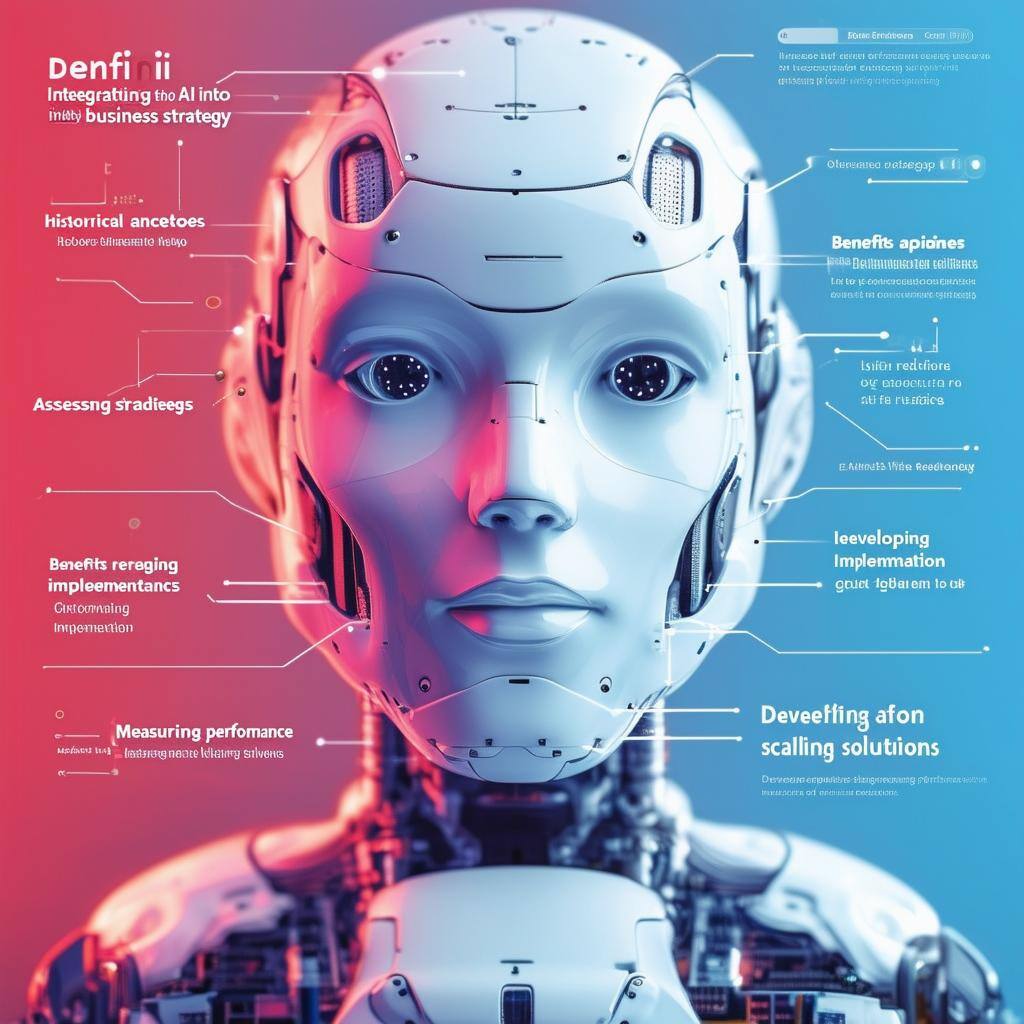The Ultimate Guide to Integrating AI into Your Business Strategy
Artificial Intelligence (AI) has swiftly transitioned from a futuristic concept to a transformative force reshaping industries across the globe. For...
4 min read
![]() Totalcare IT
:
October 28, 2024
Totalcare IT
:
October 28, 2024
Machine learning (ML) isn't just a trendy term; it's a game-changing technology that can revolutionize businesses by boosting efficiency, offering deep insights, and providing a competitive edge. For C-suite executives in small to medium-sized enterprises, leveraging ML can bring about dramatic enhancements in daily operations, customer satisfaction, and overall business strategy. This guide is packed with practical tips for effectively using machine learning, inspired by past successes and current best practices.
Definition and Scope:
Machine learning, a fascinating branch of artificial intelligence (AI), allows systems to learn from data and get smarter over time without needing explicit instructions. It includes various methodologies like supervised learning, where algorithms are trained on labeled datasets; unsupervised learning, which seeks out hidden patterns in data without labels; and reinforcement learning, where systems improve by interacting with their environment and receiving feedback.
Key Concepts:
Key concepts in machine learning (ML) encompass algorithms, which are sets of rules for processing data; models, which are representations of patterns learned from data; and training, the process of teaching a model using data. For instance, a decision tree algorithm could be employed to categorize customer data into various segments based on their purchasing behavior.
Enhanced Decision-Making:
Machine learning offers a treasure trove of insights and predictions derived from data analysis. By harnessing the power of ML, businesses can make smarter decisions, fine-tune their strategies, and stay ahead of market trends. For example, predictive analytics can forecast sales patterns, enabling companies to proactively adjust their strategies.
Back in the early 2000s, Target leveraged ML to scrutinize purchasing behaviors and predict customer actions. This innovative approach revealed a specific set of products that pregnant women were likely to purchase. By focusing their marketing efforts on these products, Target saw a significant boost in sales and enhanced customer satisfaction.
Operational Efficiency:
Machine learning can take over routine tasks and simplify workflows, making operations more efficient. For instance, AI-powered chatbots can manage customer service questions, freeing up human agents to tackle more complicated problems. Likewise, ML algorithms can fine-tune supply chain management by forecasting demand and regulating inventory.
Customer Personalization:
Machine learning empowers businesses to create tailored experiences by scrutinizing individual customer data and preferences. For example, ML algorithms can suggest products based on past purchases or browsing history, enriching the customer journey and boosting sales.
Identifying Opportunities:
Begin by identifying areas where machine learning can provide tangible benefits to your business. Think about tasks that are repetitive, require extensive data processing, or could greatly benefit from predictive insights. For instance, machine learning can be leveraged to fine-tune marketing campaigns, enhance customer segmentation, or bolster fraud detection efforts.
Setting Clear Goals:
Set clear and specific objectives for your ML projects to ensure a focused strategy and measurable success. For instance, if you're aiming to boost sales, you could leverage ML to create predictive models that anticipate customer purchasing trends.
Data Quality and Availability:
Data is the cornerstone of machine learning. It's essential to have access to high-quality, relevant data that's properly structured for ML analysis. This means your data should be accurate, complete, and timely. Investing in data cleaning and preparation is a must for successful ML implementation.
Take, for example, Google’s DeepMind in 2013. They used a massive dataset of images to train their Deep Learning model, which led to groundbreaking advancements in image recognition. This success story underscores the critical role that high-quality data plays in developing effective ML models.
Technology and Infrastructure:
Take a look at your current technology setup to see if it's ready for ML solutions. You might need to enhance your infrastructure to accommodate ML tools and platforms, which could mean investing in more computing power and data storage.
Evaluating Tools and Platforms:
When selecting machine learning tools and platforms, it's essential to pick those that best match your business needs and technical capabilities. Some popular options include TensorFlow by Google, the Scikit-learn Python library, and Amazon's AWS SageMaker. It's important to consider factors like scalability, user-friendliness, and how well these tools can integrate with your current systems.
Introduced in 2015, TensorFlow quickly became one of the most widely adopted ML frameworks because of its flexibility and scalability. Its success highlights the importance of choosing the right tools to foster innovation and enhance efficiency.
Vendor Considerations:
When selecting ML vendors, evaluate their track record, support services, and alignment with your business goals. A reliable vendor can provide valuable expertise and support throughout the ML implementation process.
Training and Validation:
Train your ML models using historical data and make sure to check their performance to ensure they're accurate and dependable. Employ techniques like cross-validation to evaluate how well your models are doing and to avoid overfitting, which is when a model works great with training data but not so well with new data.
Seamless Integration:
Seamlessly blend ML solutions into your current technology stack to ensure smooth and efficient operations. This might mean developing custom APIs or leveraging middleware to connect ML tools with your existing systems. Proper integration is crucial for maximizing the advantages of ML and ensuring it enhances rather than disrupts your processes.
Take Netflix in 2016, for example. They successfully integrated their ML recommendation system with their streaming platform, resulting in a significant boost in user engagement and satisfaction. This case highlights how effectively integrating ML with existing systems can drive remarkable business benefits.
Automation and Workflow Integration:
Automate processes and workflows with ML models to enhance efficiency. For example, ML algorithms can automate routine tasks such as data entry, freeing up employees to focus on more strategic activities. Integrating ML into workflows can lead to more streamlined operations and improved productivity.
Performance Monitoring:
Set up mechanisms to monitor the performance of ML models and track key metrics such as accuracy, precision, and recall. Regular monitoring helps identify any issues and ensures that models continue to deliver accurate and valuable insights.
Continuous Improvement:
Continuously refine and improve ML models based on performance feedback and changing business needs. Techniques such as retraining models with new data and adjusting algorithms can help maintain model effectiveness and relevance over time.
Machine learning holds incredible promise for revolutionizing how businesses operate, making smarter decisions, and creating personalized customer experiences. By grasping the core concepts of ML, evaluating your business needs, picking the right tools, and smoothly integrating ML into your existing systems, you can unlock significant advantages for your business.
Dive into the world of machine learning and uncover opportunities that can propel your business forward. Implement strategies to harness ML for growth and innovation. Equip yourself with the right tools, assemble a talented team, and keep refining your ML models to ensure continuous success. We're here to support you every step of the way—reach out to us if you need any assistance.

Artificial Intelligence (AI) has swiftly transitioned from a futuristic concept to a transformative force reshaping industries across the globe. For...

It’s a common theme. You begin seeing these amazing CGI images of your friends on Facebook or Instagram. You think, “How can I make one?”

Modern businesses run on integrations. From CRM tools and payment processors to chatbots and analytics dashboards — third-party apps make work...